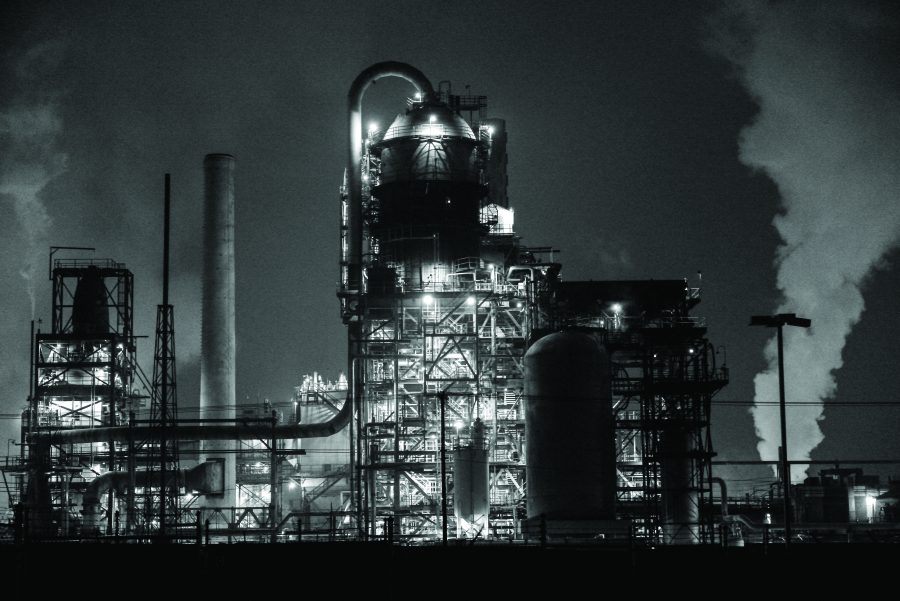This article was originally published in the Welcome Home print issue of The Daily Utah Chronicle, originally in stands on August 25, 2024. It has not been updated and some information may be out of date.
When unnecessary artificial lights fill the night sky, humans, wildlife and the environment suffer. Light pollution threatens us all.
Utah has one of the highest concentrations of certified Dark Sky Places globally. However, light pollution will only become more damaging as Utah’s population and tourism grow.
Utah’s dark skies are a treasure worth protecting. The state government must create better state-wide legislation to ensure dark skies prosper.
Light Pollution Harms
Light pollution is incredibly harmful to human health. It disrupts circadian rhythms, suppresses melatonin and reduces sleep quantity and quality. This can cause obesity, diabetes, cancer, reproductive problems and mood disorders. As light pollution proliferates, global public health deteriorates. Mitigating light pollution is not merely a commendable act. It’s crucial to remaining in good health.
Light pollution disrupts photosynthesis and plant behaviors, harms insect populations and biodiversity, drives turtle deaths and generally threatens ecosystems. It also hinders bird migration. Utah is a major migratory passageway. If the government adequately values birds, they will do whatever necessary to mitigate light pollution.
Preserving the night sky is also vital for protecting our human identity. For thousands of years, the sky has inspired mythology, culture and wonder. By severing our connection to the sky, light pollution disconnects us from our cultures and histories.
There are several more costs of light pollution, and they are undeniably destructive. The government must create better legislation to counter it.
Utah In Context
While 99% of Americans already live under sky glow, light pollution is only worsening. A 2011-2022 study showed concerning light pollution increases in North America. According to the study, sky brightness increased roughly 10.4% annually. This is no trivial problem.
Light pollution increases at twice the rate of population growth. And Utah’s population is only rising. Certified Dark Sky parks across Utah already report increasing light pollution. The impacts are hitting Salt Lake City residents hardest, as this is the most light-polluted region in Utah.
Light pollution is a growing problem. Reversing its bad effects will get harder with time. The government must start enforcing state-wide dark sky protections now. They should also prioritize light pollution mitigation in high-affected areas like Salt Lake City.
Legislation Needs
The majority of U.S states still lack light pollution reduction laws. This is unacceptable.
Fortunately, regulations in Park City and Summit County enforce lighting improvements. But other Utah cities, like Salt Lake City, continue harmful light-polluting practices.
The battle for dark skies must be fought collectively. A city’s progress is thwarted when other nearby cities fail to regulate light pollution. This is why the government must enforce state-wide legislation.
One Utah concurrent resolution encourages shielded light fixtures across the state. But we need more than encouragement. We need legislation that enforces and cultivates change.
We know that legislation is effective at protecting dark skies. The government must utilize state-wide legislation to ensure that protections reach all corners of Utah.
Implementing Change
Artificial light is expensive and environmentally costly. Unfortunately, it is frequently used in excess. A staggering 35% of U.S. light is wasted. This costs $3 billion extra annually and releases copious amounts of carbon and GHGs into the air.
When lamps project light in all directions and are not shielded downwards, this fills the night sky with unwanted brightness. This significantly threatens dark skies, and also wastes energy resources. Lights that are unnecessarily bright, or that are used in unneeded locations or times, are also wasteful. They provide no benefit for drivers, pedestrians or citizens generally. There is zero excuse for wasting artificial light. The government must help ensure it is used wisely.
The state government can start by enforcing light pollution mitigation practices for businesses and individuals. Some practices include reducing outdoor lighting, shielding lights downward and using low-light and warm hued bulbs. States such as Hawaii have already taken these steps. Utah should follow suit.
Decorative infrastructure like billboards and digital signs also cause light pollution. The government should create legislation that turns off or dims these signs.
Regardless of legislation, individuals can and should mitigate light pollution. Salt Lake residents can participate in the Lights Out Initiative to protect migrating birds. There are several other simple and effective practices individuals can undertake. They include shutting blinds, turning off lights, buying better light bulbs and more.
Utah’s abundant dark skies are an asset worth protecting. Our health, survival and identity depend on them. State-wide legislation to mitigate light pollution is the answer for a better – and darker – future. The government must get to work.



